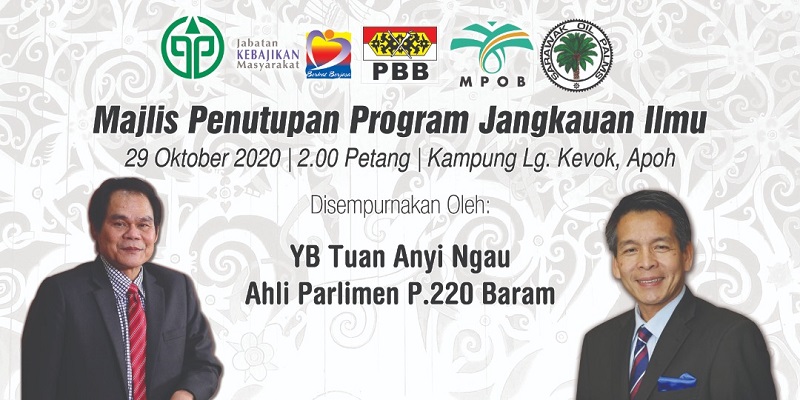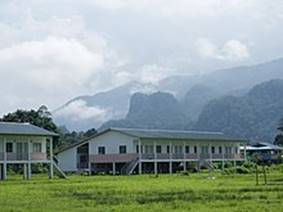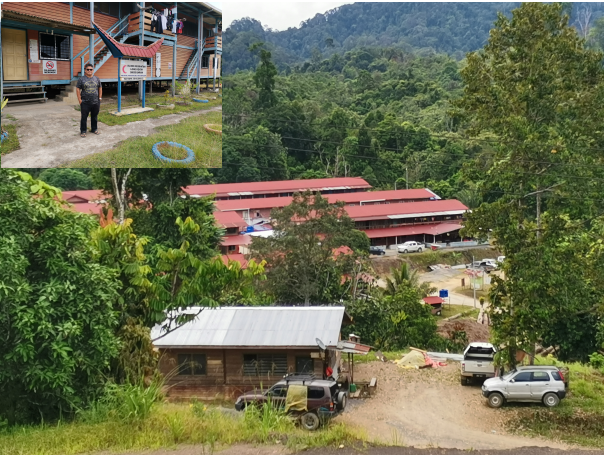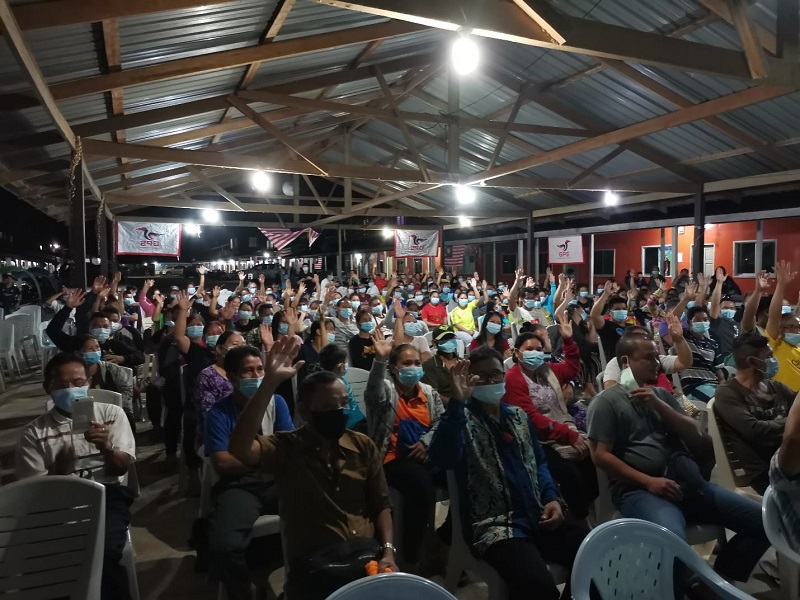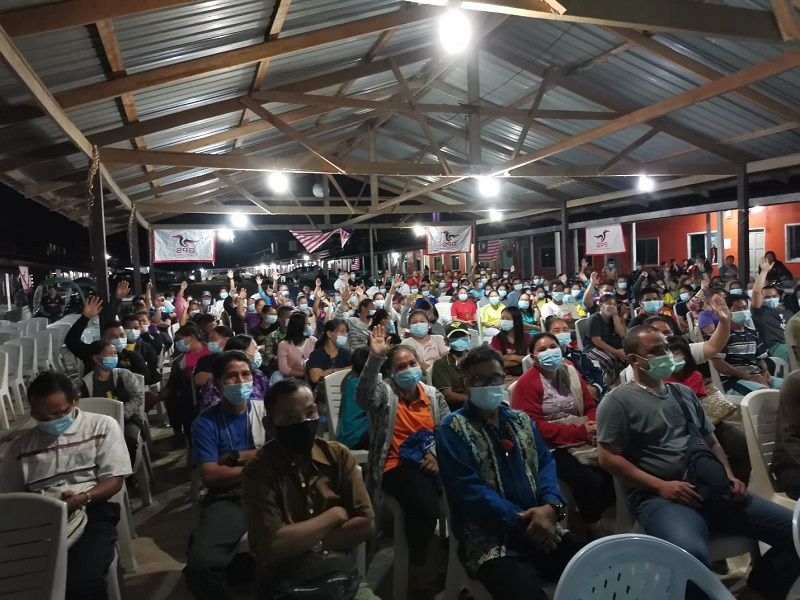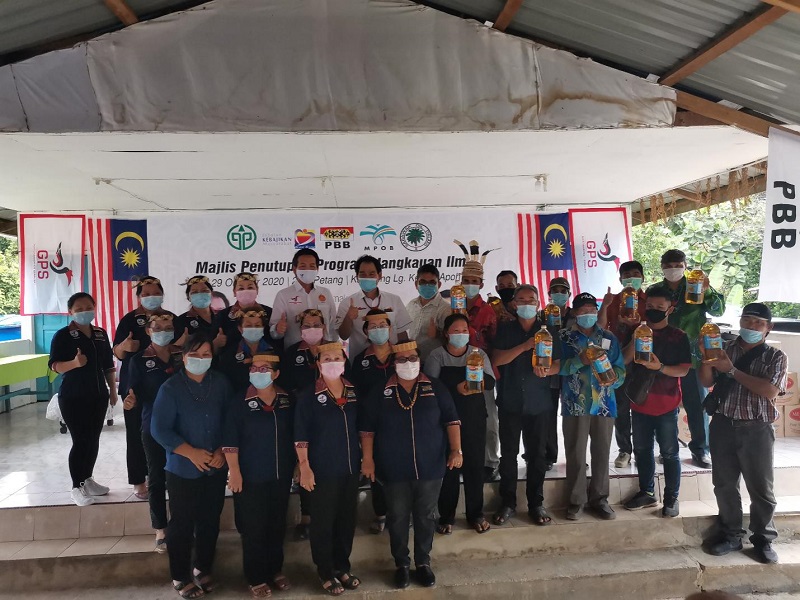SOPB Head of Sustainability (HOS) Galau Melayong gave a corporate presentation and an overview of the oil palms industry and MSPO. The program was attended by 225 participants from 10 Penan longhouses as follows:
| Item | Kampung / Village Name | Registered No. of Participants | Actual Attended |
| 1. | Long Kevok, Apoh Baram, 98050 Miri, Sarawak. |
100 | 118 |
| 2. | Long Jenalong, Long Leng, Apoh Baram, 98050 Miri, Sarawak. |
10 | 30 |
| 3. | Long Lati, Long Belok, Apoh Baram, 98050 Miri, Sarawak. |
20 | 7 |
| 4. | Long Bangan, Apoh Baram, 98050 Miri, Sarawak | 10 | 1 |
| 5. | Long Kerangan, Apoh Baram, 98050 Miri, Sarawak. | 20 | 4 |
| 6. | Long Nen, Apoh Baram, 98050 Miri, Sarawak. | 15 | 17 |
| 7. | Long Leng, Apoh Baram, 98050 Miri, Sarawak. | 20 | 20 |
| 8. | Long Urang, Apoh Baram, 98050 Miri, Sarawak. | 15 | 19 |
| 9. | Long Kawa, Long Win, Apoh Baram, 98050 Miri, Sarawak. | 20 | 1 |
| 10. | Long Meraan, Apoh Baram, 98050 Miri, Sarawak. | 20 | 8 |
| Total | 250 | 225 | |
A government sponsored longhouse in a Penan Village on the Melinau River, adjacent to Gunung Mulu National Park, Sarawak.
MORE ABOUT ETNIK PENAN, SARAWAK, BORNEO
The Penan is one of the ethnic minorities from the Orang Ulu sub-ethnic Group living in Sarawak and Brunei. Historically, they descended from the legendary Usun Apau Plateau like the other Orang Ulu ethnic group.
The majority of the Penan live in Baram (Tutoh, Patah, Apoh, Upper Akah, Selaan, Selungo), Belaga (Balui, Sungai Silat, Long Belina, Long Tikan, Long Jekitan dan Long Beku) and Limbang.
They are a nomadic indigenous people and are one of the last such peoples remaining as hunters and gatherers noted for their practice of ‘molong’ which means never taking more than necessary. Famous for the silent blowpipes and poison darts they use for hunting, the Penan particularly prize wild pigs. Most Penan remained so until the post-World War II missionaries settled many of the Penan in their current regions.
Sago is the Penan’s traditional staple food, and comes from the core of a small palm tree. The Penan process it by trampling on it, and leave it in the sun to dry into a powder. They also gather ferns and fruit from the forest.
Under the State Government program, many of the more settled Penan have started to plant rice and other crops including oil palms as a move to improve their living standard. Hence, they continue to rely on the forest for their needs.
SOPB HOS Galau visits a government sponsored longhouse at Long Kevok.
SOPB Participation and Contribution
SOPB presented a brief background of oil palms cultivation in Malaysia and the regulations applicable, MSPO certification process for smallholders, and the latest industry updates including global requirements for sustainable oil palms.
During the talk, participants were asked to indicate if they had planted oil palms with MPOB License. From the photos above, it was deduced that only half who had planted oil palms possess MPOB license. The participants were informed that MPOB license is a mandatory prerequisite in order to sell their crops and also to comply with MSPO Part 2 for Independent Smallholders. MPOB personnel gave out MPOB License application forms to the respective Ketua Kampung (Headman) for distribution to their villagers who have planted oil palms.
There was no MSPO certified smallholder present. Some participants had heard of MSPO from the Kayans in the neighboring villages who had planted oil palms. Fresh Fruits Bunches (FFB) are been sent to the nearest FFB collection centers in Long Lama Town which is almost 100 kilometers from their plots via existing roads for transporting timber.
Through such engagements, SOPB hope to encourage more smallholders to apply for MPOB Licence and MSPO certification as part of the overall efforts to produce sustainable and traceable palm oil. As at 24th October 2020, only 297,326.85 ha out of the 986,331 ha equating to 30.14% of oil palms planted by smallholders have achieved MSPO Part 2 – Independent Smallholders Certification. The dateline has been extended to 1st January 2021.
For more details information on the PENAN, please click on this link;
https://docplayer.net/60566115-People-of-the-forest-the-penan.html

